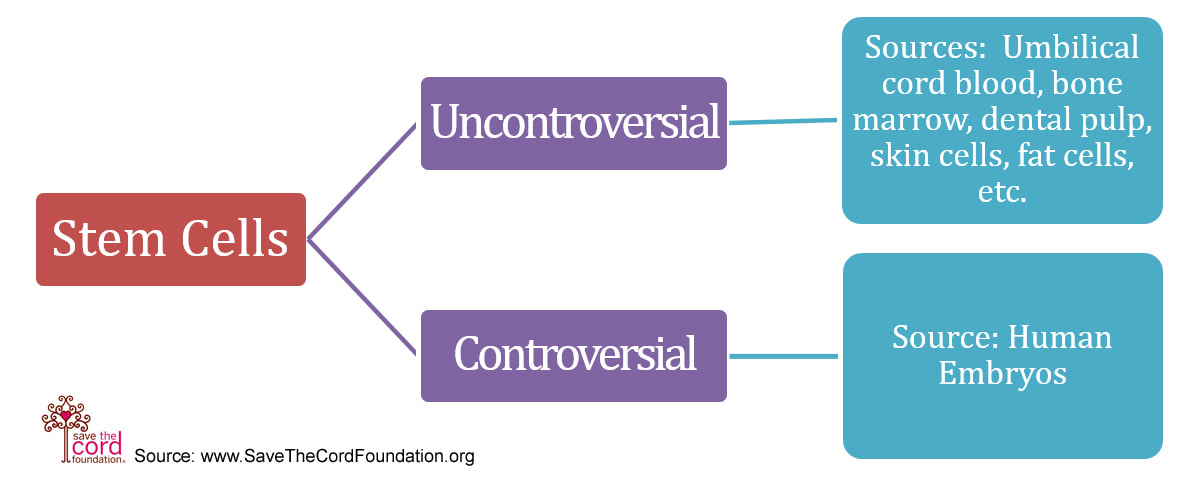Tipos de células madre
Las células madre tienen el extraordinario potencial de convertirse en muchos tipos de células diferentes en el cuerpo, y a menudo se las llama las "células maestras" o los "bloques de construcción" de la sangre, el sistema inmunológico y los tejidos internos. Es importante aprender sobre las células madre, pues sirven como un sistema de reparación para el cuerpo, ya que pueden dividirse para reaprovisionar otras células. Esto significa que estas células tienen la capacidad de crear tejidos y pueden substituir cualquier célula dentro del cuerpo.
Hay tres categorías principales de células:
Las células madre de la sangre de cordón son más jóvenes que las células madre adultas y poseen tremendas habilidades para transformarse en diversos tipos de células, y para dividirse y renovarse a sí mismas continuamente. Por eso, hay pocas incidencias de enfermedad de injerto contra huésped (EICH), en la que el cuerpo rechaza las células madre recibidas. Otro punto muy importante acerca de las células madre de la sangre de cordón es que, a diferencia de las células madre embrionarias, aquellas están libres de controversias éticas: estas células, si no se las utilizase, serían simplemente desperdiciadas.
Las células madre adultas encontradas en la médula espinal y la sangre periférica también tienen la capacidad de convertirse en otros tipos de células. Sin embargo, son difíciles de adquirir. Además, las células tienen la misma edad que el donante y hay un mayor riesgo de reacción negativa en el destinatario.
Las células madre embrionarias poseen, de la misma manera, la capacidad de transformarse en muchos tipos diferentes de células. Pero hay serios debates éticos que implican los métodos de adquisición de células madre embrionarias y su uso en investigación.
Hay tres categorías principales de células:
Las células madre de la sangre de cordón son más jóvenes que las células madre adultas y poseen tremendas habilidades para transformarse en diversos tipos de células, y para dividirse y renovarse a sí mismas continuamente. Por eso, hay pocas incidencias de enfermedad de injerto contra huésped (EICH), en la que el cuerpo rechaza las células madre recibidas. Otro punto muy importante acerca de las células madre de la sangre de cordón es que, a diferencia de las células madre embrionarias, aquellas están libres de controversias éticas: estas células, si no se las utilizase, serían simplemente desperdiciadas.
Las células madre adultas encontradas en la médula espinal y la sangre periférica también tienen la capacidad de convertirse en otros tipos de células. Sin embargo, son difíciles de adquirir. Además, las células tienen la misma edad que el donante y hay un mayor riesgo de reacción negativa en el destinatario.
Las células madre embrionarias poseen, de la misma manera, la capacidad de transformarse en muchos tipos diferentes de células. Pero hay serios debates éticos que implican los métodos de adquisición de células madre embrionarias y su uso en investigación.




